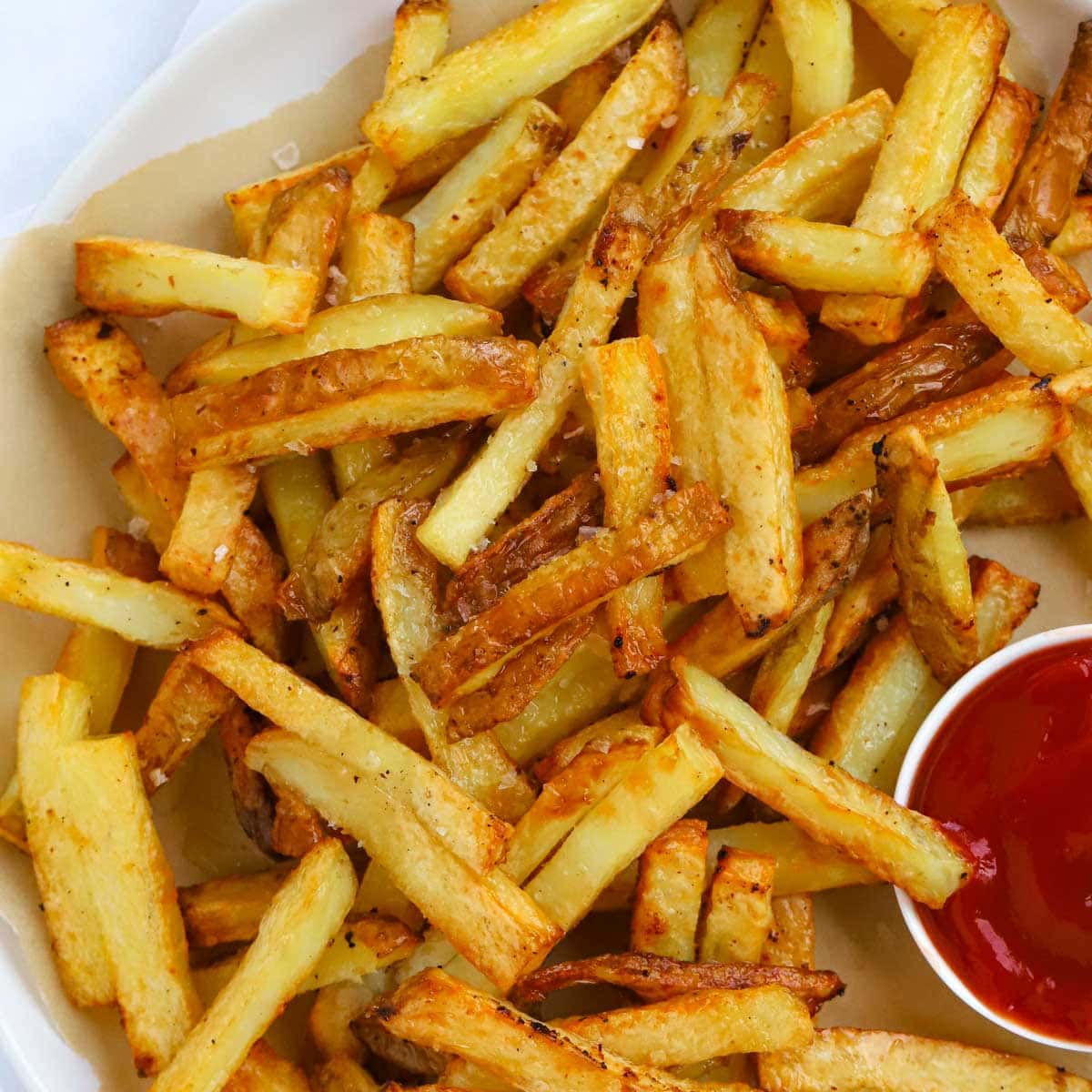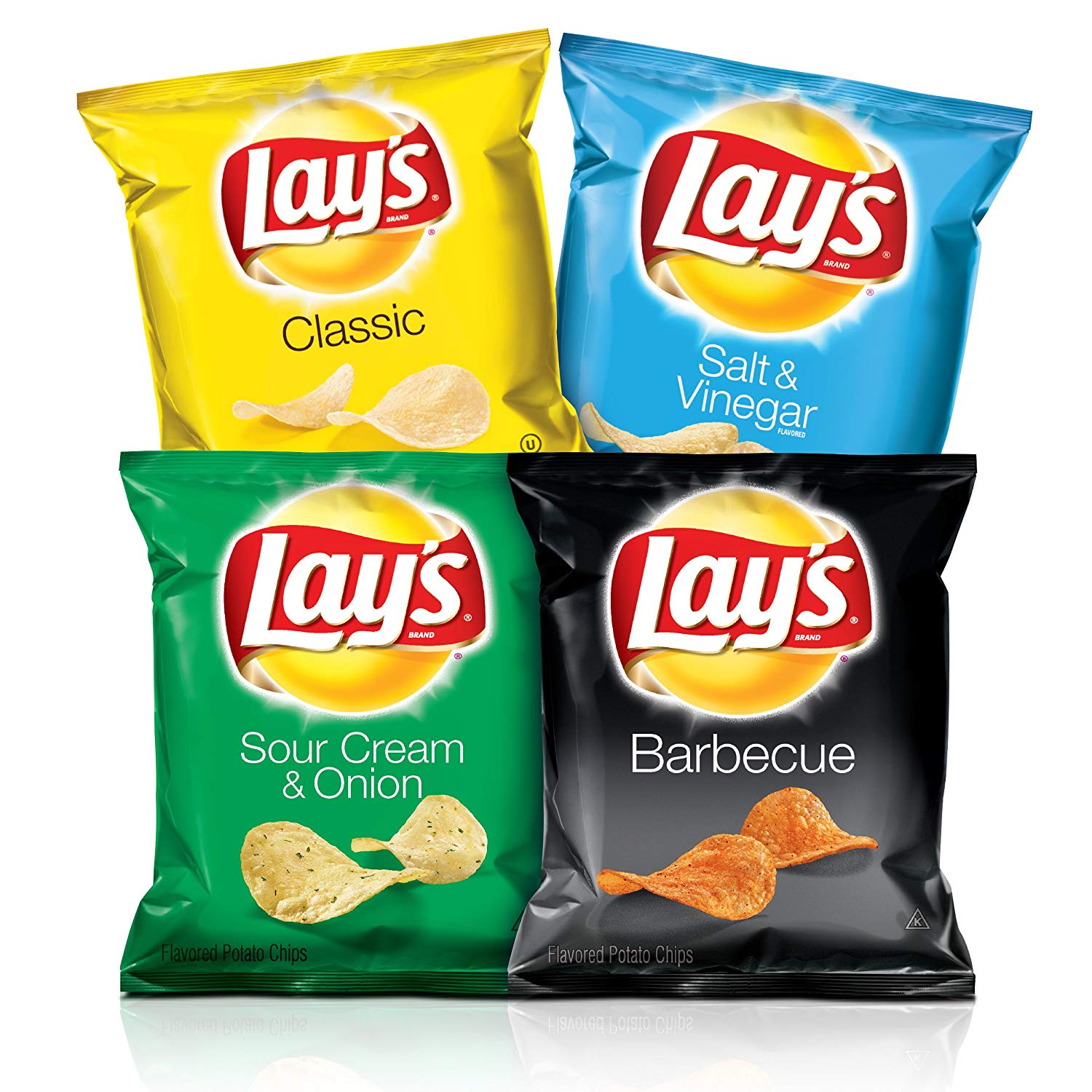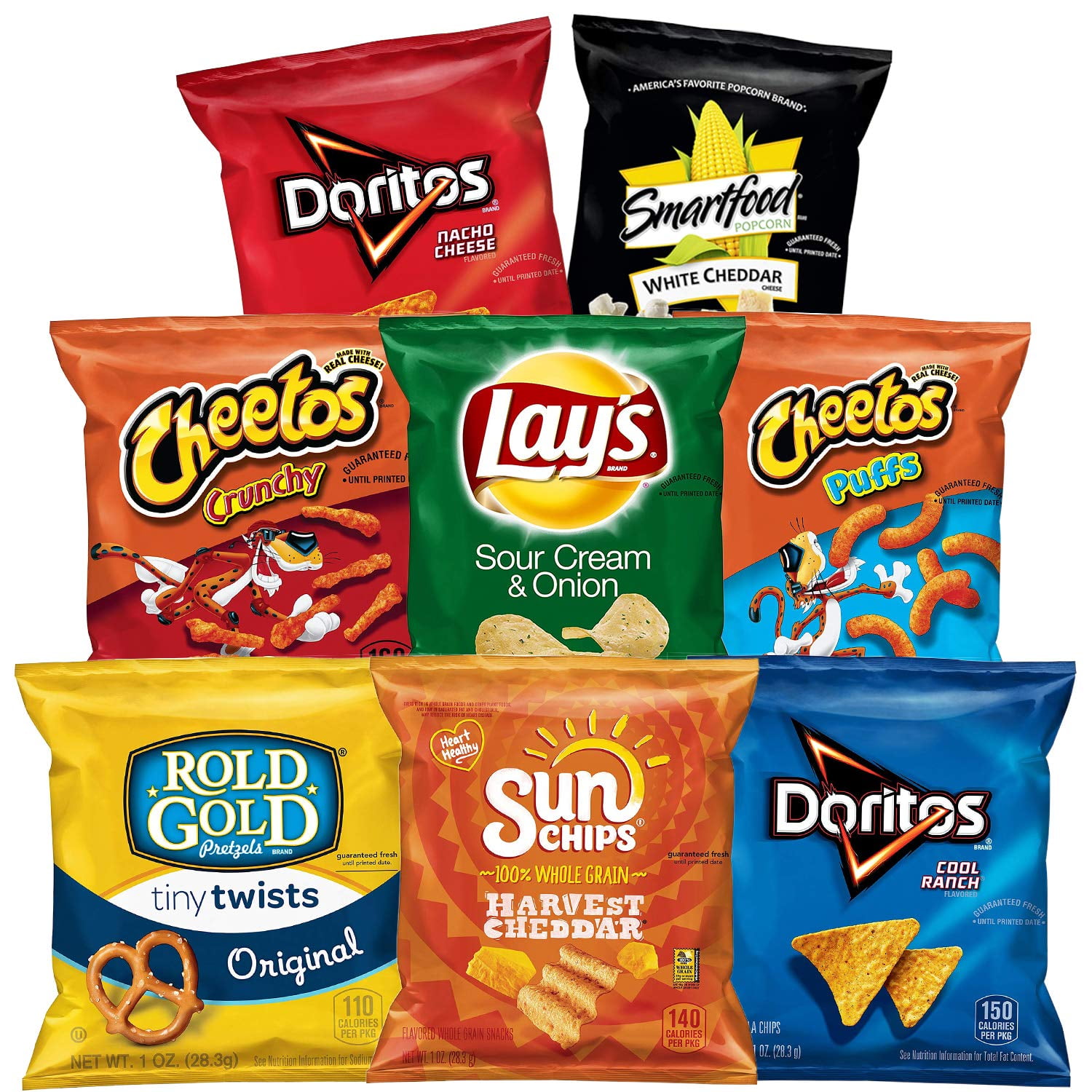Figuring out how to talk about "chips" when you're speaking Spanish can sometimes feel like a bit of a puzzle, don't you think? It's not just one simple word, you see. What you call those crispy potato slices or those warm, fried potato sticks really changes depending on where you are and what kind of "chip" you mean. So, it's almost like you need a little map for this, isn't it?
For someone just getting started with Spanish, or even if you've been speaking it for a while, this topic can certainly bring up some questions. You might be wondering if you should say "patatas fritas" or "papas fritas," or maybe even just "chips." It's a common point of confusion, and that's perfectly okay. We're going to clear things up for you today, giving you a really good idea of what words to use and when.
Right now, we're going to explore the different ways to say "chips" in Spanish, looking at both the more formal and the more relaxed ways of speaking. We'll also cover some of the regional differences, which are actually quite interesting. You'll get plenty of helpful examples, too, to make sure you can use these words in your own conversations with confidence. It's truly a useful thing to know, especially when you're talking about food.
Table of Contents
- Understanding the Basics of Chips in Spanish
- Regional Flavors: How Different Places Say It
- Beyond the Food: Other Meanings of "Chip"
- Practical Tips for Using the Words
- Frequently Asked Questions About Chips in Spanish
- Wrapping Things Up: Your Chips Vocabulary
Understanding the Basics of Chips in Spanish
When you're trying to figure out how to say "chips" in Spanish, it's pretty important to remember that the word can mean a couple of different things in English. You might be thinking of those thin, crunchy snacks that come in a bag, what folks in the UK call "crisps." Or, you could be picturing those thicker, fried potato sticks you get with a burger, which British people often call "chips" and Americans call "French fries." So, you know, this distinction really matters when you're picking your Spanish word.
The Two Main Types of Chips
Basically, to talk about the kind of "chips" you eat, you're usually looking at two main categories. First, there are the thin, flat, bagged potato snacks. Then, there are the longer, thicker potato pieces that are fried. Each type, you see, has its own typical Spanish translation. It's almost like they have their own little language families, you know?
Patatas Fritas and Papas Fritas: The Classic Choice
For those fried potato sticks, the ones that are like French fries, the most common phrase you'll hear is "patatas fritas." This is a very widely understood term, especially in Spain. However, you might also hear "papas fritas," particularly in many parts of Latin America. Both phrases, you see, mean the same thing: fried potatoes. So, it's really just a matter of regional preference, which is actually quite common in Spanish.
For example, if you're sitting down at a restaurant in Madrid and you want a side of French fries, you would typically ask for "patatas fritas." They would certainly understand what you mean. On the other hand, if you were in, say, Mexico City, asking for "papas fritas" would be the more natural way to go. It's kind of neat how the language shifts, isn't it? These terms are both very authoritative translations for this type of chip.
It's worth noting that "patata" and "papa" both mean "potato." The word "fritas" simply means "fried." So, when you put them together, you're literally saying "fried potatoes." This makes a lot of sense, doesn't it? You're basically describing what they are, which is a pretty straightforward way to name a food item, you know?
Regional Flavors: How Different Places Say It
The Spanish language, as you might know, is spoken in many different countries, and each place has its own little quirks and favorite words. This is very true when it comes to food terms, and "chips" are a perfect example of this. What's common in one country might be less so in another, or it could even mean something slightly different. So, it's always a good idea to keep the geography in mind, you see.
Spain and Latin America: A Linguistic Divide
In Spain, when people talk about those thin, crunchy potato snacks that come in a bag, like potato crisps, they often say "patatas fritas de bolsa." The "de bolsa" part, which means "of the bag," helps to make it clear that you're talking about the packaged kind, not the hot, fried ones. It's a pretty precise way to put it, you know? This helps to avoid any confusion at all.
However, in Latin America, for those same bagged snacks, you'll often hear "papas fritas de bolsa" or, quite commonly, just "papas." Sometimes, people might even use the English word "chips" directly, as a loanword, which is rather interesting. It really just depends on the specific country and how much English influence there might be. So, you might hear a few different things, actually.
For the thicker, fried potato sticks (French fries), as we talked about, Spain leans heavily on "patatas fritas." Latin American countries, on the other hand, typically use "papas fritas." But wait, there's more! Some places, like Mexico, might also say "papas a la francesa," which literally means "French-style potatoes." This is another widely recognized way to refer to them, so you've got options, you see.
It's kind of fascinating how these linguistic preferences develop, isn't it? It's not about one way being more "correct" than another, but simply about what's customary in a particular area. Knowing these regional variations can really help you sound more natural when you're speaking with native speakers. It shows you've got a handle on the language's nuances, which is pretty cool.
The Rise of "Chip" as a Loanword
Interestingly enough, the English word "chip" has, in some places, found its way directly into the Spanish vocabulary. You might hear people, especially younger generations or in areas with more exposure to English, simply say "chips" when they're talking about those bagged potato crisps. This is a common phenomenon in language, where words are borrowed from other tongues. So, it's not entirely surprising, you know?
This use of "chip" as a loanword is particularly common for the thin, bagged variety of potato snacks. It's less common for the fried potato sticks, where "patatas fritas" or "papas fritas" still rule the day. So, if you hear someone say "chips" in Spanish, they're most likely talking about a bag of crisps. It's a pretty straightforward way to communicate, actually.
Beyond the Food: Other Meanings of "Chip"
While our main focus here is on the delicious food item, it's worth a quick mention that the English word "chip" has other meanings that translate very differently into Spanish. For instance, if you're talking about a computer chip, that's typically called a "microchip" or just "chip" (again, as a loanword) in Spanish, or sometimes "circuito integrado." So, it's not always about potatoes, you see.
If something gets a "chip" in it, like a piece of wood or glass, the verb to "chip" something is "desportillar." And a small piece that has broken off might be called a "astilla" (splinter) or "trozo" (piece). So, you know, the context really changes the word you need to pick. It's a good reminder that words can have many lives, in a way.
Practical Tips for Using the Words
To really get a good handle on using these words, here are a few practical pointers. First, always think about which type of "chip" you mean: the bagged snack or the fried stick. This is your very first step, actually. Then, consider where you are speaking Spanish. Are you in Spain, or are you in a Latin American country? This will help you choose between "patatas" and "papas."
For French Fries (the hot, fried sticks):
- In Spain, use "patatas fritas."
- In Latin America, use "papas fritas" or sometimes "papas a la francesa."
For Potato Crisps (the thin, bagged snacks):
- In Spain, use "patatas fritas de bolsa."
- In Latin America, use "papas fritas de bolsa" or often just "papas." You might also hear "chips" as a direct loanword, you know.
When in doubt, using the more descriptive phrase, like "patatas fritas de bolsa," is always a safe bet because it's very clear. People will certainly get what you mean. And remember, hearing how native speakers say it is one of the best ways to learn. So, try to listen carefully when you're out and about. You'll pick it up pretty quickly, I think.
You can also find plenty of authoritative translations of "chips" in Spanish with example sentences and even audio pronunciations if you look online. This can really help you get the sounds right. Learning more about Spanish vocabulary on our site can help you with other common food terms, too. It's all about building up your word knowledge, you see.
Frequently Asked Questions About Chips in Spanish
People often have some very similar questions when it comes to talking about "chips" in Spanish. It's a common area of curiosity, and that's perfectly fine. Let's clear up some of those frequently asked things right now. It's always good to get those little doubts sorted out, isn't it?
What's the difference between 'patatas fritas' and 'papas fritas'?
Basically, both "patatas fritas" and "papas fritas" mean "fried potatoes" or "French fries." The main difference is simply regional. "Patatas fritas" is the typical term you'll hear in Spain, while "papas fritas" is very common in most Latin American countries. So, you know, it's like saying "soda" versus "pop" in English; same thing, just a different word based on where you are. They are both correct, it's just about local custom, actually.
Is 'chip' a Spanish word?
Well, "chip" isn't originally a Spanish word, no. It's an English word that has been borrowed into Spanish, especially for those thin, bagged potato crisps. So, you might hear people use it, particularly in some Latin American countries or among younger speakers. It's a loanword, you see, and those happen a lot in languages. However, for fried potato sticks, the traditional Spanish terms are much more common. So, it's not a native term, but it's used.
How do you say 'potato chips' (crisps) in Spanish?
To talk about those thin, crunchy potato snacks that come in a bag, what British people call "crisps," in Spain, you'd typically say "patatas fritas de bolsa." The "de bolsa" part makes it clear it's the bagged kind. In Latin America, you'll often hear "papas fritas de bolsa" or simply "papas." As we talked about, sometimes the English word "chips" is used too, especially for this type of snack. So, you have a few good choices, you know.
Wrapping Things Up: Your Chips Vocabulary
So, there you have it! You've got a much better grasp now on how to talk about "chips" in Spanish, haven't you? It's all about knowing the type of chip and the region you're in. Whether you're craving some "patatas fritas" in Spain or some "papas fritas" in Latin America, you're now equipped with the right words. Remember, practice really helps, so try using these terms next time you're chatting in Spanish or ordering food. You can learn more about Spanish food terms on our site, too. It's truly a useful skill to have, and you're doing great!



Detail Author:
- Name : Karolann Flatley
- Username : jalyn.jacobs
- Email : bennett82@watsica.com
- Birthdate : 1971-04-24
- Address : 4667 Fern Manors Buckridgeside, NM 45887-0167
- Phone : (321) 324-4120
- Company : Hane and Sons
- Job : Obstetrician
- Bio : Ex quo architecto quia tenetur rerum. Quo maxime dicta quasi quod. Dolores voluptatum sunt quas in. Ipsa dolor temporibus consequatur ea sequi consequuntur officia.
Socials
linkedin:
- url : https://linkedin.com/in/hansenr
- username : hansenr
- bio : Et modi qui modi aut iusto et.
- followers : 1777
- following : 2847
instagram:
- url : https://instagram.com/retta2469
- username : retta2469
- bio : Velit ad quis quas qui ea vero. Quidem qui illo provident est dicta omnis.
- followers : 5282
- following : 2318
facebook:
- url : https://facebook.com/hansen1984
- username : hansen1984
- bio : Suscipit enim accusantium saepe facilis fuga.
- followers : 6417
- following : 1191

